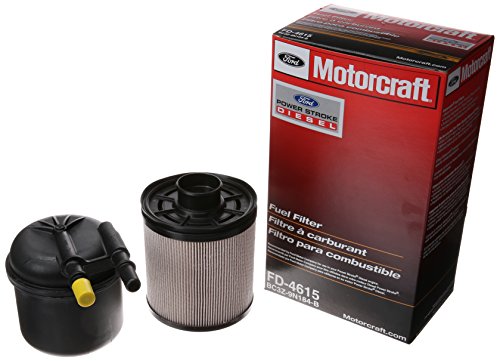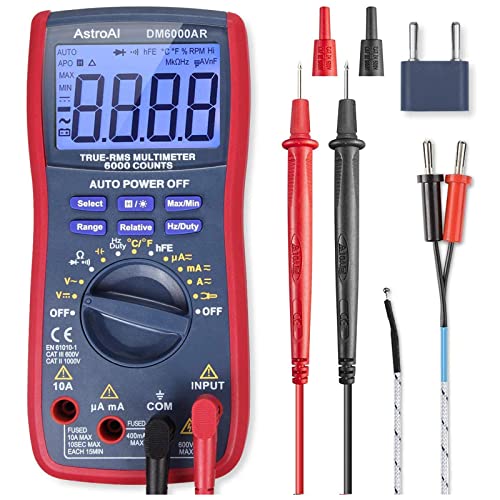Picture this, you're merging onto a highway and you put your foot down on the gas pedal so you can safely merge into traffic. Except your car doesn't start accelerating very fast. It feels heavy and sluggish. What could be the cause? We've researched some common problems that might be causing your car to feel heavy and sluggish and have an answer for you.
Things that could be causing your car to feel heavy and sluggish are:
- A clogged air filter or catalytic converter
- Clogged fuel filter
- Faulty sensors
- Problems with the fuel pump
- Damaged exhaust manifold
- Faulty spark plugs
We've listed a few things that could be causing your car to feel heavy and sluggish, but keep reading as we elaborate on each one. We'll go over ways to diagnose the problems, other symptoms to look out for, and possible ways to fix them.

Car Feeling Heavy or Sluggish
There are a number of issues that could cause your car to feel heavy or sluggish, or that it just isn't quite accelerating the way it should be. It's important to try and figure out the problem before it leads to other problems with your car.
The easiest way to tell if there's a problem is by checking to see if the check engine light has come on. Getting the check engine code read will inform you of any major problems. However, if your check engine light hasn't come on, some of the problems listed below might still be to blame.
Clogged Air Filter or Catalytic Converter
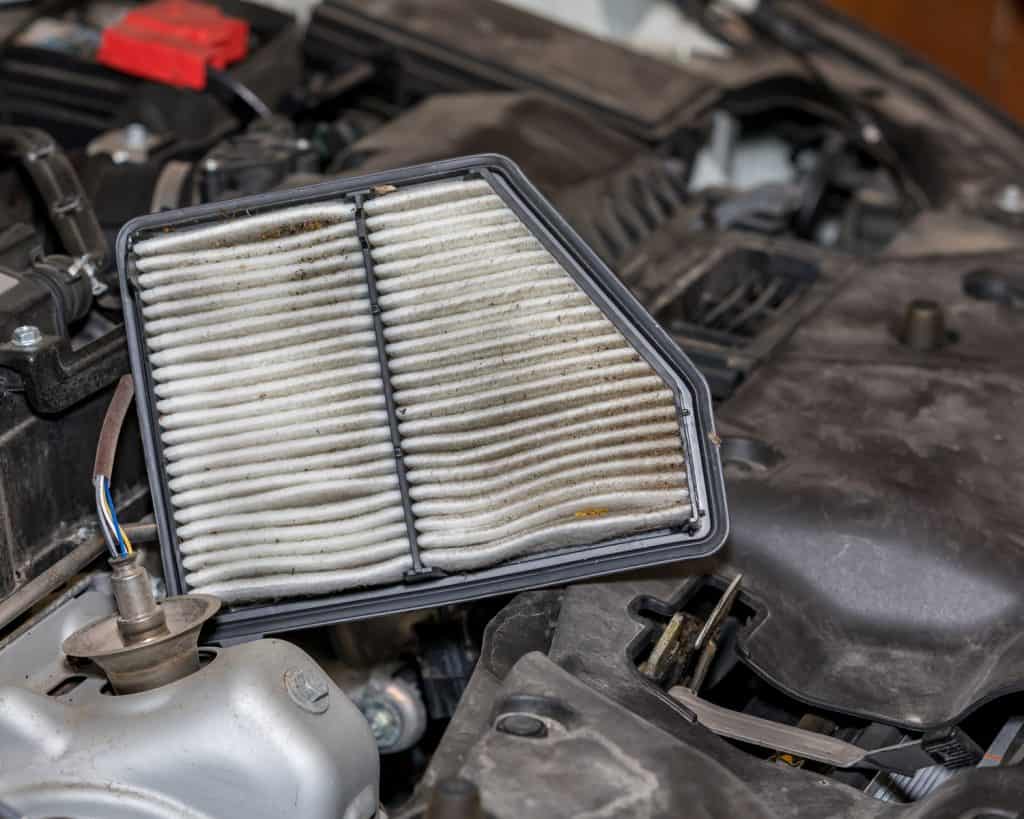
A clogged air filter or catalytic converter can both cause your car to feel sluggish or heavy. A dirty air filter prevents the flow of air which reduces the amount of oxygen. A lack of oxygen can cause the engine to misfire. Similarly, a clogged catalytic converter can reduce horsepower in your car. A catalytic converter processes dangerous emissions and converts them to safe gases. If the catalytic converter is clogged it can cause a backup of these gases.
You can do a visual inspection of your air filter and you'll be able to tell if it's dirty. Diagnosing a clogged catalytic converter might be a little more tricky, but some other symptoms of a clogged catalytic converter include dark exhaust smoke, bad smells, and trouble getting the engine to start.
If you're concerned about how much the air filter might cost to replace, check out our article on the topic here: How Much Does It Cost To Replace Engine Air Filter?
Clogged Fuel Filter
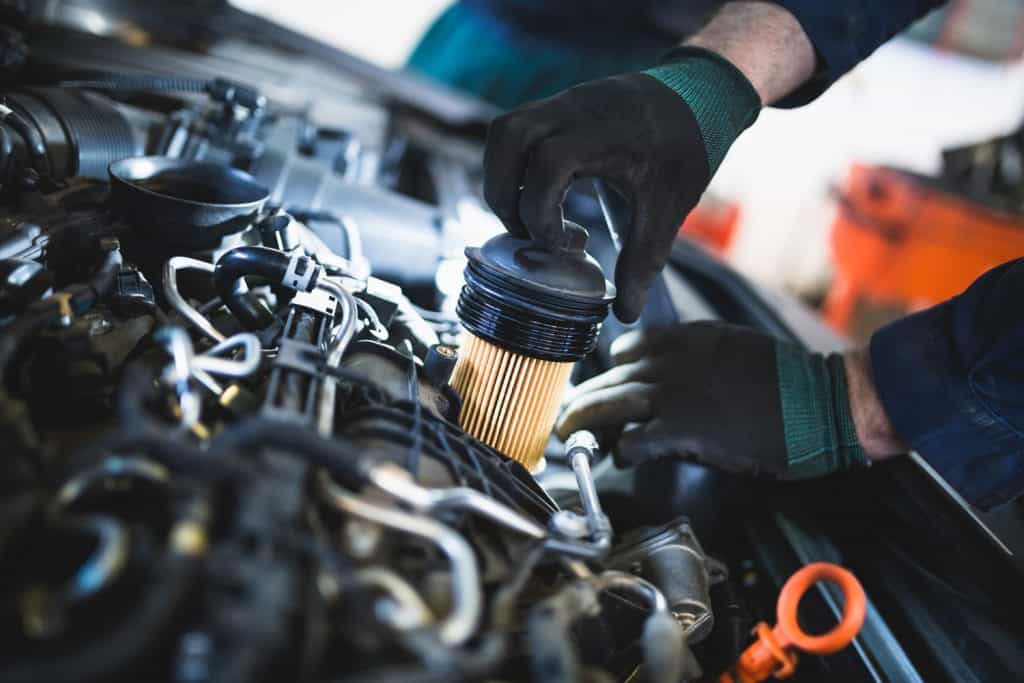
A clogged fuel filter can limit the flow of fuel and cause the engine to misfire. In return, it might not start or you may struggle to accelerate. A fuel filter stops debris from getting into your engine, but sometimes the debris can build up and prevent fuel from passing through too.
How do I check if my fuel filter is clogged?
Before actually removing the filter, there are some other signs of a clogged fuel filter you can check for. If along with issues accelerating your car also has trouble starting, it sputters, or you're noticing a drop in fuel efficiency, you might have a clogged fuel filter.
How do you fix a clogged fuel filter?
Fuel filters are made of varying materials and there are many different types. Depending on the material your fuel filter is made from, you could try and remove the clogged fuel filter and clean it. There are lots of tutorials on how to do this.
You should only try cleaning your fuel filter if it is made from metal. Unfortunately, many filters are made from paper If this is the case for yours, you should instead replace it. Just be sure to purchase the correct make of filter for your vehicle.
Click here to see Motorcraft - Fuel Filter (FD4615) on Amazon.
Faulty Sensors
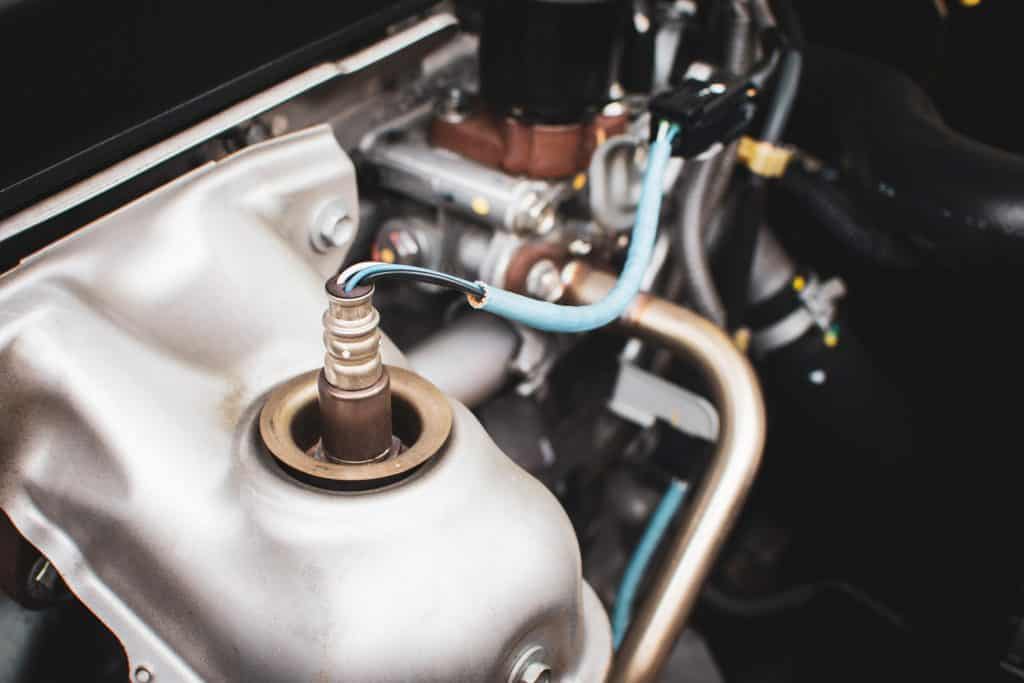
Cars have multiple sensors in them and if something is wrong with one of them, the faulty sensor can send the wrong signal. If the mass airflow or oxygen sensor in your vehicle is faulty, it can cause problems with the air-fuel mixture data and confuse the engine. A faulty throttle position sensor can also cause your car to feel sluggish.
If you think you have a faulty sensor, it is best to consult a professional, as they will have the correct tools to diagnose the problem.
Problems With Fuel Pump
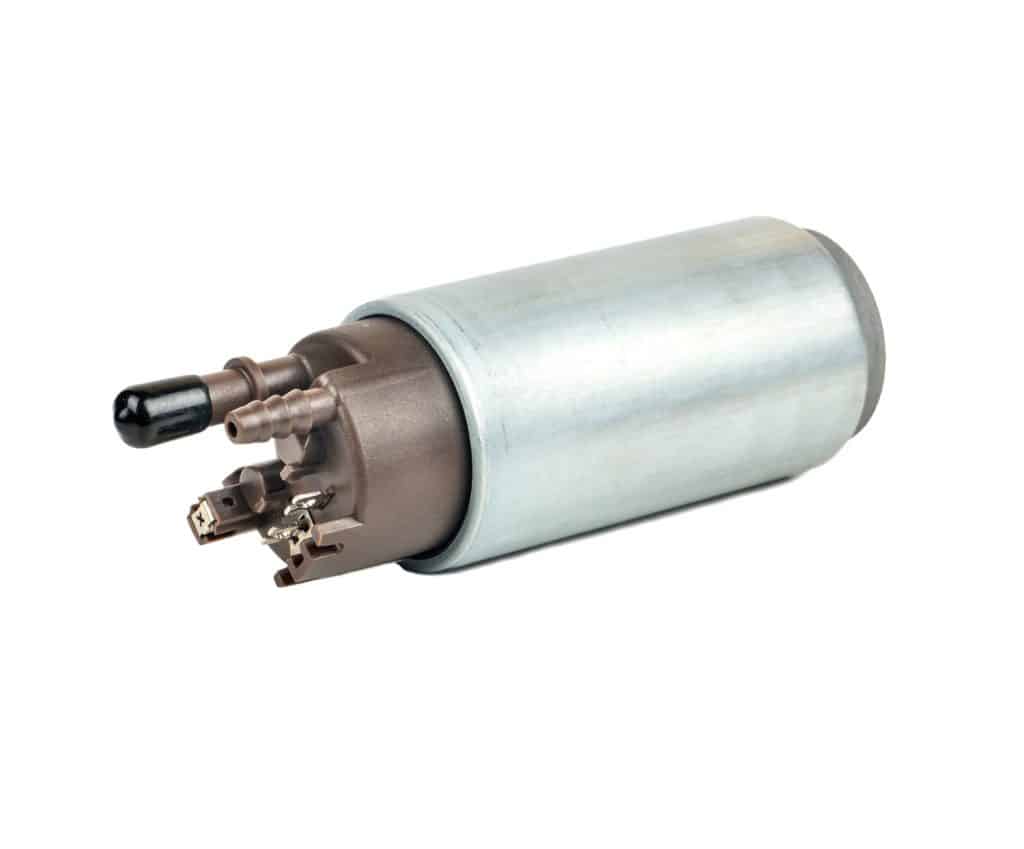
The fuel pump delivers the fuel to the fuel injectors. If there is a problem with the fuel pump or it is clogged, not enough fuel will reach your vehicle's engine. If your car stutters at high speed, has trouble starting, or is getting low gas mileage, you might have a problem with your fuel pump. You may also hear a whining noise from your fuel tank.
Damaged Exhaust Manifold
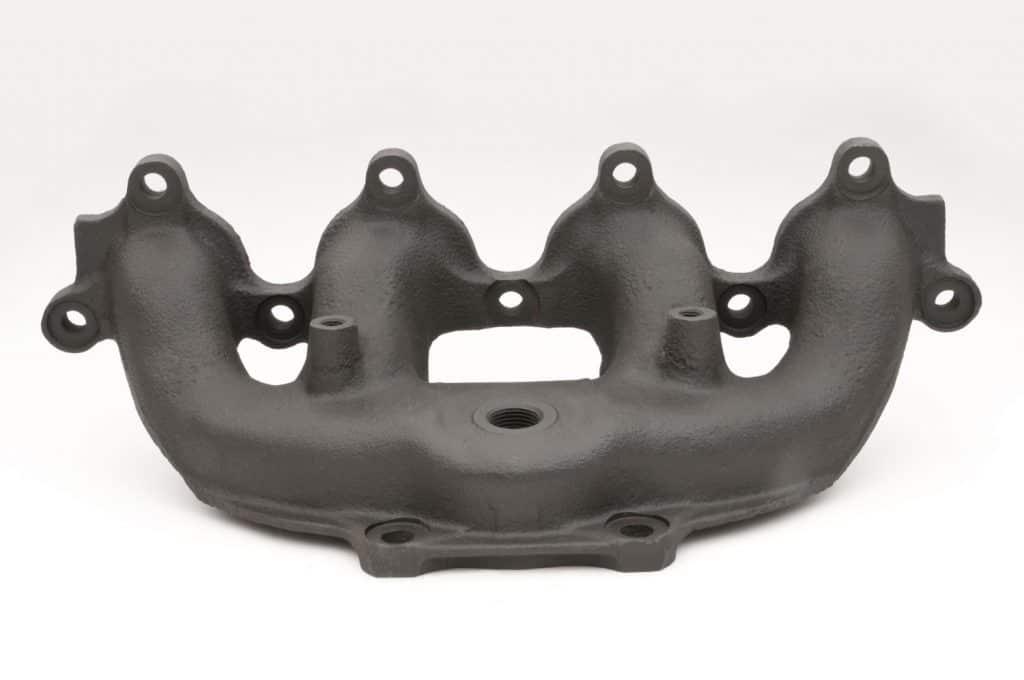
A damaged exhaust manifold can also cause your car to feel sluggish. Your exhaust manifold might be cracked or leaking which can cause incorrect backpressure. Other signs your exhaust manifold is damaged are sputtering, strange noises, or a sudden loss of power in your vehicle. It will also cause an increase in gas consumption, so if you've noticed you're getting less mileage than usual, the exhaust manifold might be the problem.
If your exhaust manifold is to blame, it's important to get it checked quickly. A damaged exhaust manifold could to problems with your catalytic converter as well.
Faulty Spark Plugs
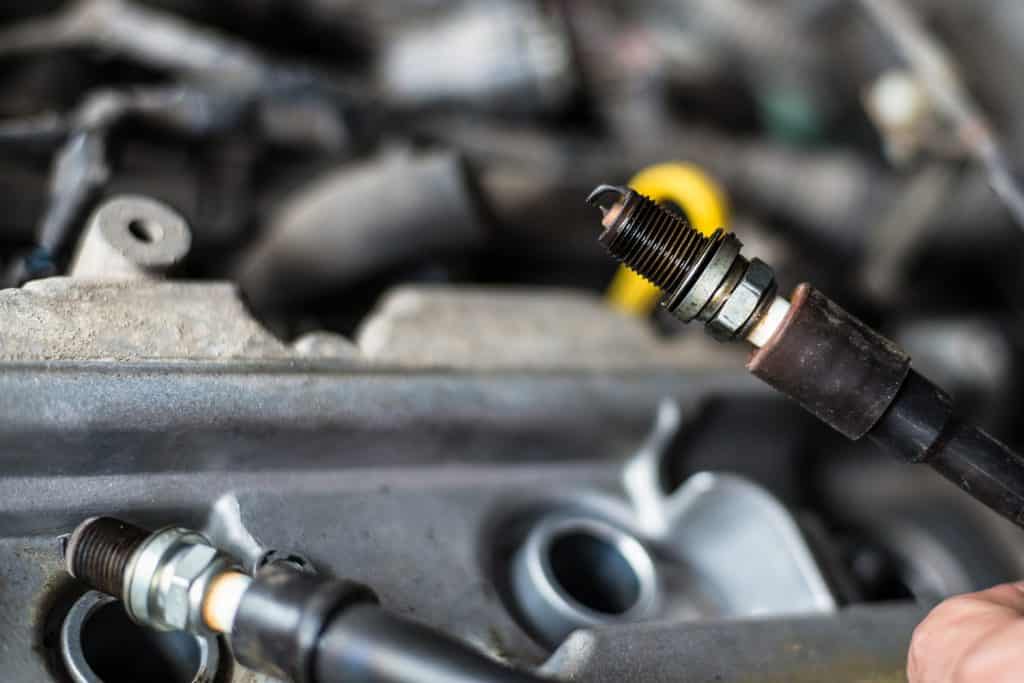
Spark plugs can cause quite a few problems if they become faulty or dirt, and this includes causing your car to feel sluggish. They can become dirty or fouled from oil leaking onto them or from overheating. If the spark plug is faulty, it might not be able to generate the spark that helps power the engine, thus causing your car to feel sluggish.
Fortunately, you can test a spark plug easily with a multimeter. Check out the youtube video on how to do so below:
Click here to see AstroAI Digital Multimeter Auto-Ranging Tester on Amazon.
Why does my car feel sluggish when I accelerate?
Unfortunately, it can be tricky to diagnose why your car is feeling sluggish when you accelerate. It could be due to any of the reasons we mentioned above. Most of the issues we listed do have other symptoms to look out for as well. Try taking note of any other issues you might have noticed with your car to narrow down possibilities. However, unless your car savvy, the best way to get a diagnosis is by taking a trip to the mechanic.
How do I know if my fuel injectors are clogged?
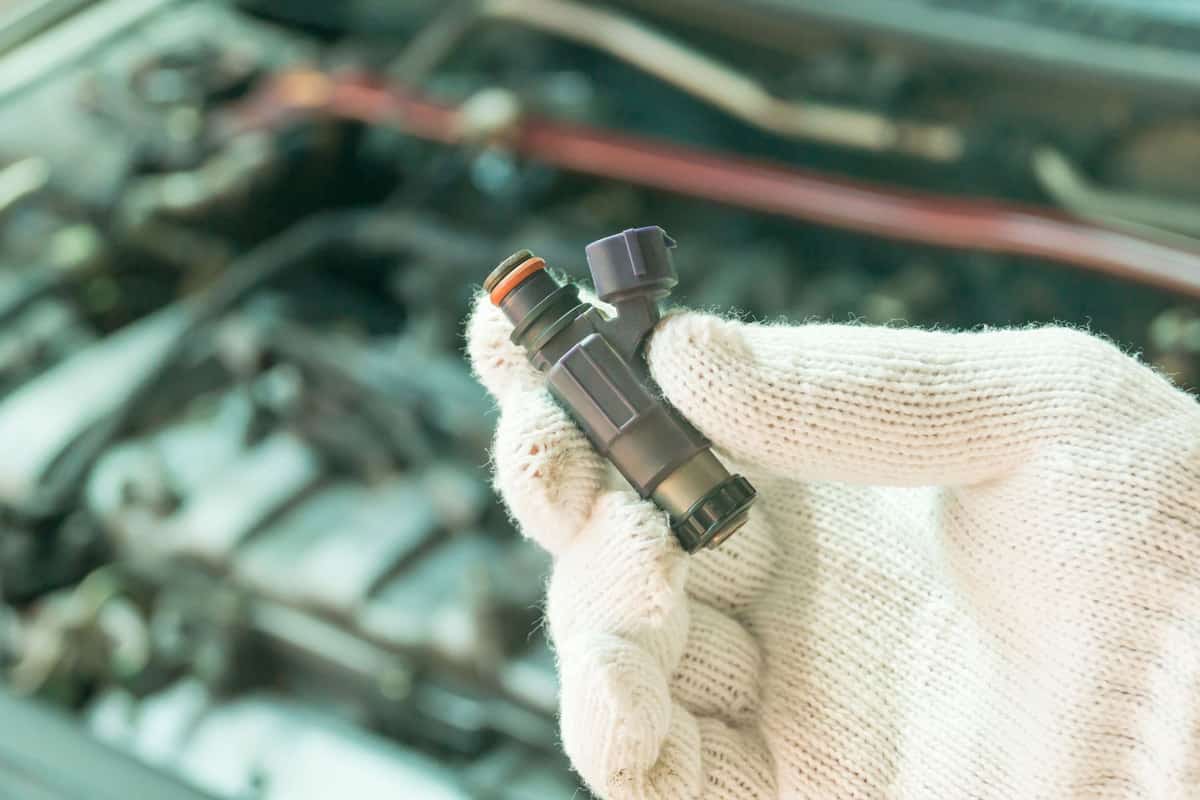
If your fuel filter isn't performing well, it can allow particles to clog your fuel injectors. A clogged fuel injector can cause a number of problems. If your vehicle sputters when it's idling or is not doing as well on gas as it was before, it could be the fuel injector. Clogged fuel injectors might also cause a failed emissions test or your car might not start at all.
There are some arguments as to whether a fuel injector cleaner can cause more harm than good, so before you try it out, check out our article on the topic here: Can Fuel Injector Cleaner Cause Problems?
Final Thoughts
Because there are many reasons your car might feel sluggish or heavy, it is important to take note of any other problems your car might be having. Hopefully, our article has helped you understand some of the possible reasons your car might be feeling heavy and sluggish. As with most car problems, the best thing to do is take it to a trained mechanic.

